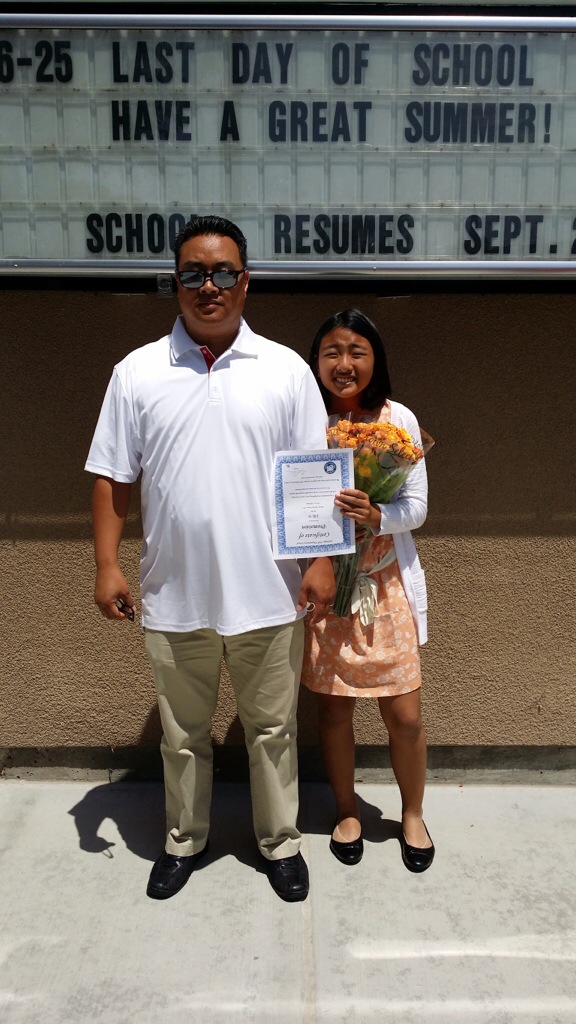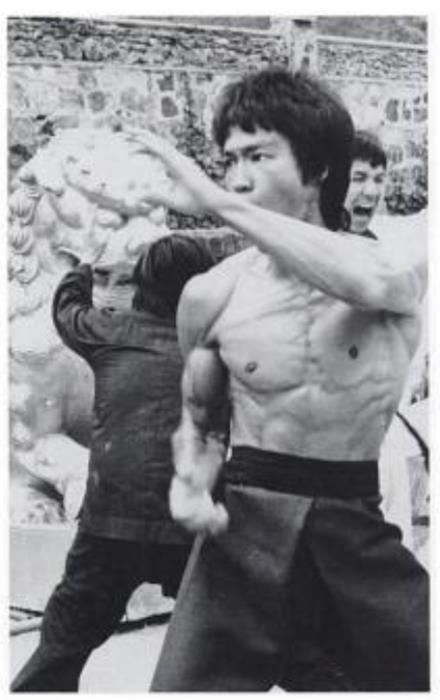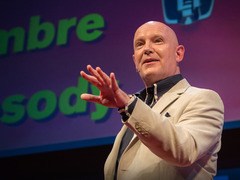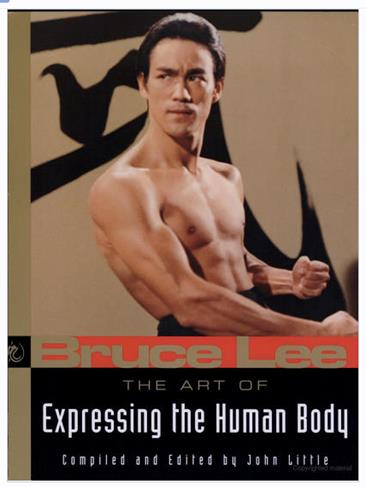Here’s the last TED-related post for the week. Julian Treasure recently gave a talk back about speaking so people will listen. He should know. Companies pay him to for his input on how to use sound. Yeah. That’s a job. Anyways. He shared about seven deadly sins of speaking: gossip, judging, negativity, complaining, excuses, embroidery/exaggeration, and dogmatism (“the confusion of facts with opinions”). To contrast, he also shared four cornerstones of powerful speech that brings change: honesty, authenticity, integrity, and love (HAIL). He goes on to give eight tools to help in speaking, but . . . now I’ve just quoted way too much. First of all, I want to ask forgiveness for having engaged in the seven deadly sins on too regular a basis. Second, for all my sins, I hope that my speaking has at least incorporated the elements of HAIL.
Blog
-

Do It Yourself
Recently, my daughter got a huge kick out of watching Disney XD stars make “Build a Superhero” videos. One guy (Jake) built himself up as a superhero named “Butterfly Net.” His catch-phrase? “Do it yourself.” This week, all my posts will be related to recent TED talks that I’ve viewed. I’ll probably reference them a ton in the future, because I just love them. They inspire me. There were a couple back in March, though . . . that bothered me: one by Chris Kluwe on augmented reality and another by Ray Kurzweil on hybrid thinking. They basically talked about how computers were going to help us so much in the future. Kluwe believes AR will help football players play. Kurzweil believes nanocomputers will help us think. How is that helping? I think technology has made us dumber. Technology has become a crutch.
-

Graduation or Promotion or Whatever
My daughter is graduating . . . sorry . . . “promoting” from 6th grade today. Already? Seriously? Is anyone ever ready for these various stages of life (or the stages of life of their loved ones). Dan Gilbert, in a recent Ted talk shared about this. He explained that we all succumb to “an illusion that history, our personal history, has just come to an end, that we have just recently become the people that we were always meant to be and will be for the rest of our lives.” Some are so confident that they can handle the next stage of life, yet in the face of that next stage, they find it is more difficult (or easier) than they imagined. Some struggle to advance in life because of resistance to graduate from one part of our life to the next. Just enjoy every moment!
-

The Way Things Are
Remember Tupac’s “Changes” where he sampled Bruce Hornsby? “That’s just the way it is. Some things will never change.” That may be the case, but do we really need to be resigned to such a mentality. If we’re honest with ourselves, the way things are . . . are not necessarily the way things should be. Often, things have become what they are because they started with good intentions. Somebody wanted to make life easier or structured. Time changes things, though, doesn’t it? Jaroslav Pelikan said, ““Tradition is the living faith of the dead, traditionalism is the dead faith of the living.” Jesus said the same thing over and over again in Matthew, “You have heard that it was said . . . but I tell you . . .” Why? The motive for the “saying” was for benefit, but the practice of the tradition over time became detriment.
-
Yelp Review for Kookie’s Sandwiches
Read my Yelp review for Kookie’s Sandwiches
-

Then Die
It’s my birthday, so no post today. For my birthday, I will share with you this anecdote from one of the people I admire most.

Bruce Lee (click to view full image) Stirling Silliphant (a student of Lee’s) relates an interesting story that perfectly embodies Lee’s attitude toward progressive resistance in cardiovascular training as well as his refusal to let a person—in this case Silliphant—underestimate his own physical potential:
“Bruce had me up to three miles a day, really at a good pace. We’d run the three miles in twenty-one or twenty-two minutes. Just under eight minutes a mile [Note: when running on his own in 1968, Lee would get his time down to six-and-a half minutes per mile]. So this morning he said to me “We’re going to go five.” I said, “Bruce, I can’t go five. I’m a helluva lot older than you are, and I can’t do five.” He said, “When we get to three, we’ll shift gears and it’s only two more and you’ll do it.” I said “Okay, hell, I’ll go for it.” So we get to three, we go into the fourth mile and I’m okay for three or four minutes, and then I really begin to give out. I’m tired, my heart’s pounding, I can’t go any more and so I say to him, “Bruce if I run any more,” —and we’re still running-“if I run any more I’m liable to have a heart attack and die.” He said, “Then die.” It made me so mad that I went the full five miles. Afterward I went to the shower and then I wanted to talk to him about it. I said, you know, “Why did you say that?” He said, “Because you might as well be dead. Seriously, if you always put limits on what you can do, physical or anything else, it’ll spread over into the rest of your life. It’ll spread into your work, into your morality, into your entire being. There are no limits. There are plateaus, but you must not stay there, you must go beyond them. If it kills you, it kills you. A man must constantly exceed his level.” -
Loser
Back in 2006, while I was doing ministry in Houston, I had taken the youth group of The United Korean Church of Houston to a Dare 2 Share conference. In one of the talks that Greg Stier gave, he explained that there were three types of people: rebels, posers, and losers. He challenged us to be “losers” for Christ (Matthew 10:39). Recently, I had an epiphany that took this lesson to the next level for me. For the longest time, I had arrogantly thought of myself as so important . . . so knowledgeable/smart/spiritual. I was deeply humbled by the realization that I wasn’t “all that.” It forced me to look at myself (and my past) and review my relationships and social interactions in a different way. When you start to think of yourself as “less than,” I believe it offers you a huge opportunity to grow.

2006 Dare 2 Share Conference -
Friend of Suffering
In March, I saw this great TED Talk by Kelly McGonigal about how to make stress your friend. She was talking about how we generally view stress as a negative thing, but maybe we shouldn’t. Maybe we should take a different perspective. Stress could rather be the body’s physical response to bolster us to overcome the obstacles that we encounter in everyday life. I thought to myself that this could be the same for faith. The word “stress” is not in the Bible, so I decided the next best word that could most embrace the meaning was the word “suffering.” The Bible talks much about suffering. Romans 5:1-5 talks about suffering leading to hope. Perhaps Christians need to take a different perspective on suffering. Rather than seeing it as negative, maybe it could be seen as a way to bolster faith.
-
Double Dipping
I remember one time in one of my seminary classes, our professor told us that we were not allowed to double-dip. What? Double-dipping is the process by which a student uses one assignment to fulfill the requirements of two (or three) different classes. It seemed a little strict, but I understood the reasoning behind it. It was an issue of integrity and each class had its own reason for the assignment. The student should go through the process for each class. One of the things I learned about Dwight Pentecost (who recently went to be with the Lord) was that he apparently never re-used a sermon. In fact, he would start completely from scratch whether he had preached from the passage or not. I am writing this to tell you that I am probably going to double-dip for these posts.
-
I Think Therefore I Do Not
At the beginning of the year, by the time resolutions were already being broken, I preached about something that was bothering me. I felt like . . . so many people (myself included) were spending too much time talking about and thinking about the things we needed to do or wanted to do, but we weren’t actually doing them. There’s a saying, “When all is said and done, there’s a lot more said than done.” How about another Bruce Lee quote? “If you spend too much time thinking about a thing, you’ll never get it done.” Buffett shares the acronym: KISS (“Keep it Simple, Stupid). What did Jesus say? “The spirit is willing, but the flesh is weak.” In the Bible, when people move in faith (not blindly), things happen. The problems arise when they start to question God’s wisdom on a thing.

